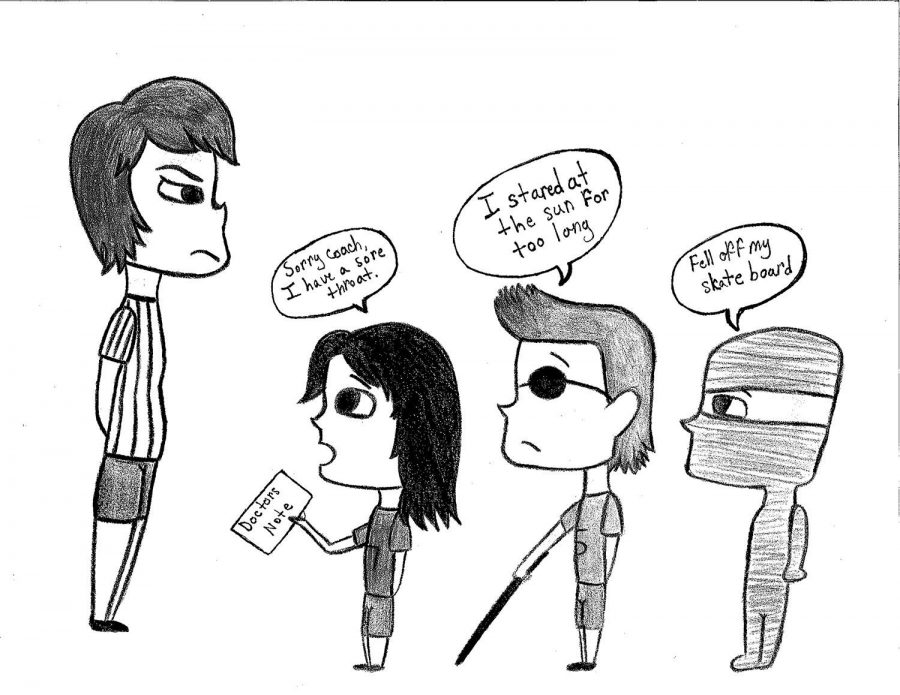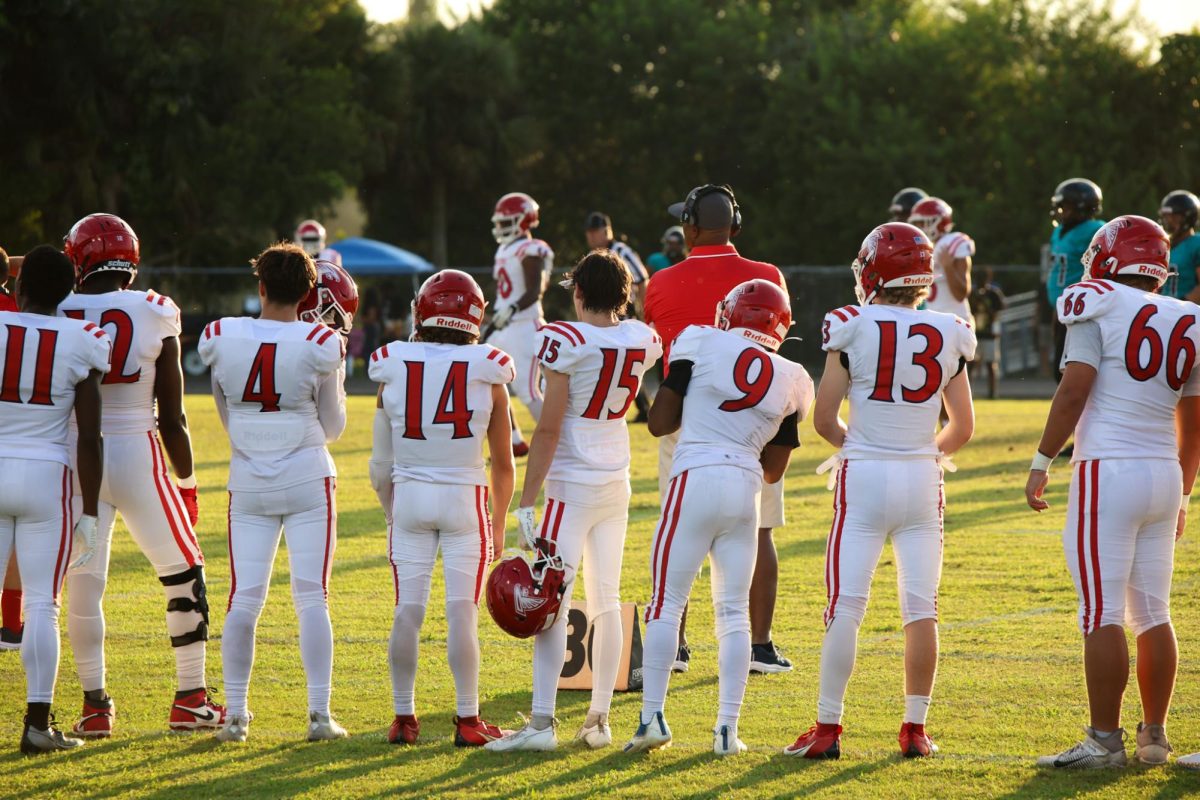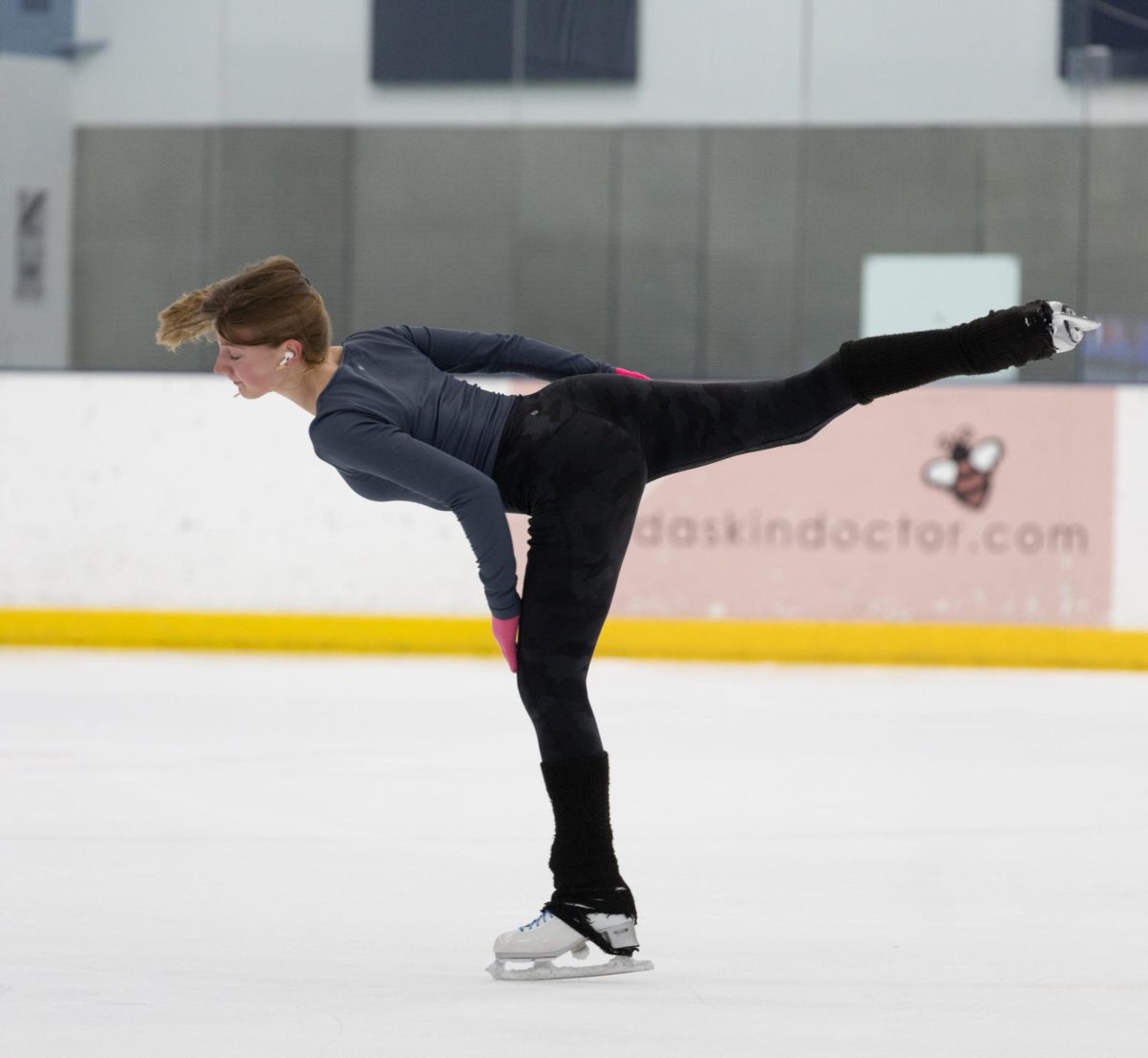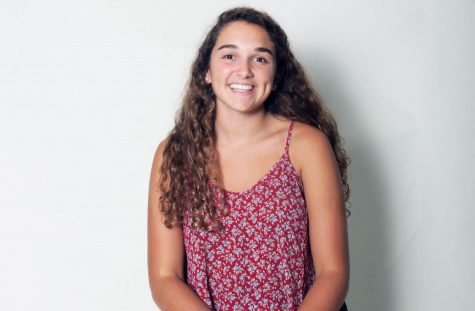It was my freshman year, my first time on a high school sports team, and I was standing in a line with a handful of other students on the track team, getting ready to run another set of sprints. I was tired, sweaty and dehydrated. I looked at the four or five students lining up to run, and then my gaze drifted over to the bleachers halfway filled with injured athletes.
I’m not an athletic trainer. I’m not a physical therapist either, but I don’t have to be a professional to know that when half my school’s track team is sitting on the bleachers during warm-ups, they’re not all injured.
“[I’ve seen faked injuries at Dreyfoos] usually in track,” track and field athletic trainer Jennifer Tindall said. “[It’s] because they’re tired. They aren’t as conditioned as they think they are, and they don’t want to practice hard. Or they’re scared [that] if they push themselves to hard, they will get injured.”
Even at Dreyfoos, injury-faking is common. This phenomenon is a practice that has been carried out since the beginning of sports, not just recently.
“Most people who fake an injury are people who don’t want to do a sport,” communications senior Steffan Gawlikowski said. “They’re tired of what they’re doing. It gives them something to say instead of pushing through the pain.”
While most high school athletic teams have hardworking and dedicated players, there are a few team members who try out just for fun. However, sports aren’t as easy as they may look, and some athletes can end up stuck in a sport they later wish they had never signed up for.
“A lot of times it’s the parents,” Ms. Tindall said. “Parents are trying to live their dream through their kids, so [the athlete will] fake an injury [to get out of the sport].”
Too many times we hear of parents “living their dreams through their kids.” This is not only unfair for the athlete, but it’s also unfair to another player who could participate in their place. High school students interested in a certain athletic field should be allowed to pursue it based on their own will, not because of what “mommy and daddy” are making them do.
“If somebody were faking an injury, it’s probably because they aren’t as competitive as they thought they would be,” track and field coach, athletic director and math teacher Christopher Burns said. “They are embarrassed that they are not as good as they thought they were.”
Another reason why athletes fake injuries is because they are not satisfied with the way they are performing. They may not be adapting to the sport as well as they thought they would, and this causes them to withdraw from the sport and create excuses for their performance.






























































